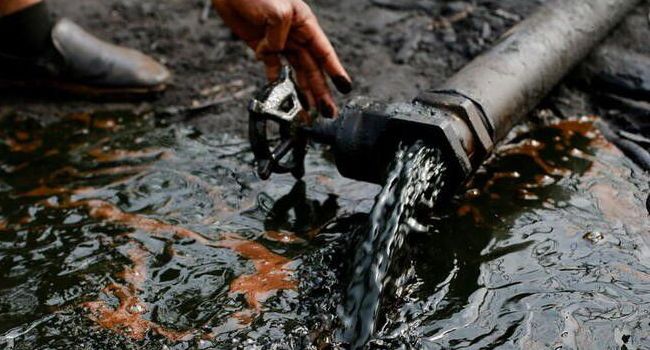Business
Why India’s importation of Nigeria’s crude has dwindled —NNPCL

India, a primary destination for Nigerian crude has increased its appetite for discounted Russian barrels to the detriment of some Nigerian volumes leading to a dip in the volume of crude exported by the country, the Nigerian National Petroleum Company Limited (NNPC Ltd.) has revealed.
This has been necessitated by the ongoing war between Russia and Ukraine which has led to a dip in demand from the once-dependable Asian market at the onset of hostilities in the Eastern bloc, NNPCL disclosed.
This development was disclosed by NNPC’s Executive Director of Crude and Condensate, Maryamu Idris, during a recent panel presentation at the Argus European Crude Conference in London.
“To illustrate the extent of this shift, Nigeria’s crude exports to India dwindled from approximately 250,000 barrels per day (bpd) in the six months preceding the February 2022 invasion of Ukraine to 194,000 in the subsequent six months afterwards. And so far this year, only around 120,000 bpd of Nigerian crude volumes have made their way to India,” Idris said.
She noted that despite this decrease in demand from India, the Nigerian crude flow to Europe has increased in a bid to fill supply gaps left by the ban on Russian crude, pointing out that six months before the war, 678,000 bpd of Nigerian crude grades went to Europe, compared to 710,000 bpd six months later and 730,000 bpd so far this year.
Idris added that the conflict has accelerated the shift of Nigerian crude grades to Europe, with several distillate-rich varieties becoming a preferred choice for European refiners.
READ ALSO:Crude oil price hits $97 per barrel after US storage hub records decline in stocks
“This trend makes it evident that Nigerian grades are increasingly becoming a significant component in the post-war palette of European refiners. Several Nigerian distillate-rich grades have become a steady preference for many European refiners, given the absence of Russian Urals and diesel. Forcados Blend, Escravos Light, Bonga, and Egina appear to be the most popular, and our latest addition – Nembe Crude – fits well into this basket,” she said.
In addition to the impact of the Russia-Ukraine conflict, Idris said that Nigerian crude output had also been affected by production challenges, including reduced investment in the upstream sector, supply chain disruptions, ageing oil fields, and oil theft.
Idris, however, noted that the challenges are fast becoming a thing of the past with the introduction and implementation of a new framework for the domestic petroleum industry (the PIA of 2021), rejuvenating the business landscape, and re-positioning NNPC Limited to adopt a more commercial approach to the management of the nation’s hydrocarbon resources.
According to her, NNPCL has secured vital partnerships with notable financial institutions to promote upstream investments to restore and sustainably grow production capacity in the coming years.
“Suffice to say we have already begun seeing significant progress on the rebound. In September 2023, Nigeria recorded its highest crude oil and condensate output in nearly two years, reaching 1.72 million barrels per day. This, we believe, is just the beginning of our production rebound.”
Join the conversation
Support Ripples Nigeria, hold up solutions journalism
Balanced, fearless journalism driven by data comes at huge financial costs.
As a media platform, we hold leadership accountable and will not trade the right to press freedom and free speech for a piece of cake.
If you like what we do, and are ready to uphold solutions journalism, kindly donate to the Ripples Nigeria cause.
Your support would help to ensure that citizens and institutions continue to have free access to credible and reliable information for societal development.




















